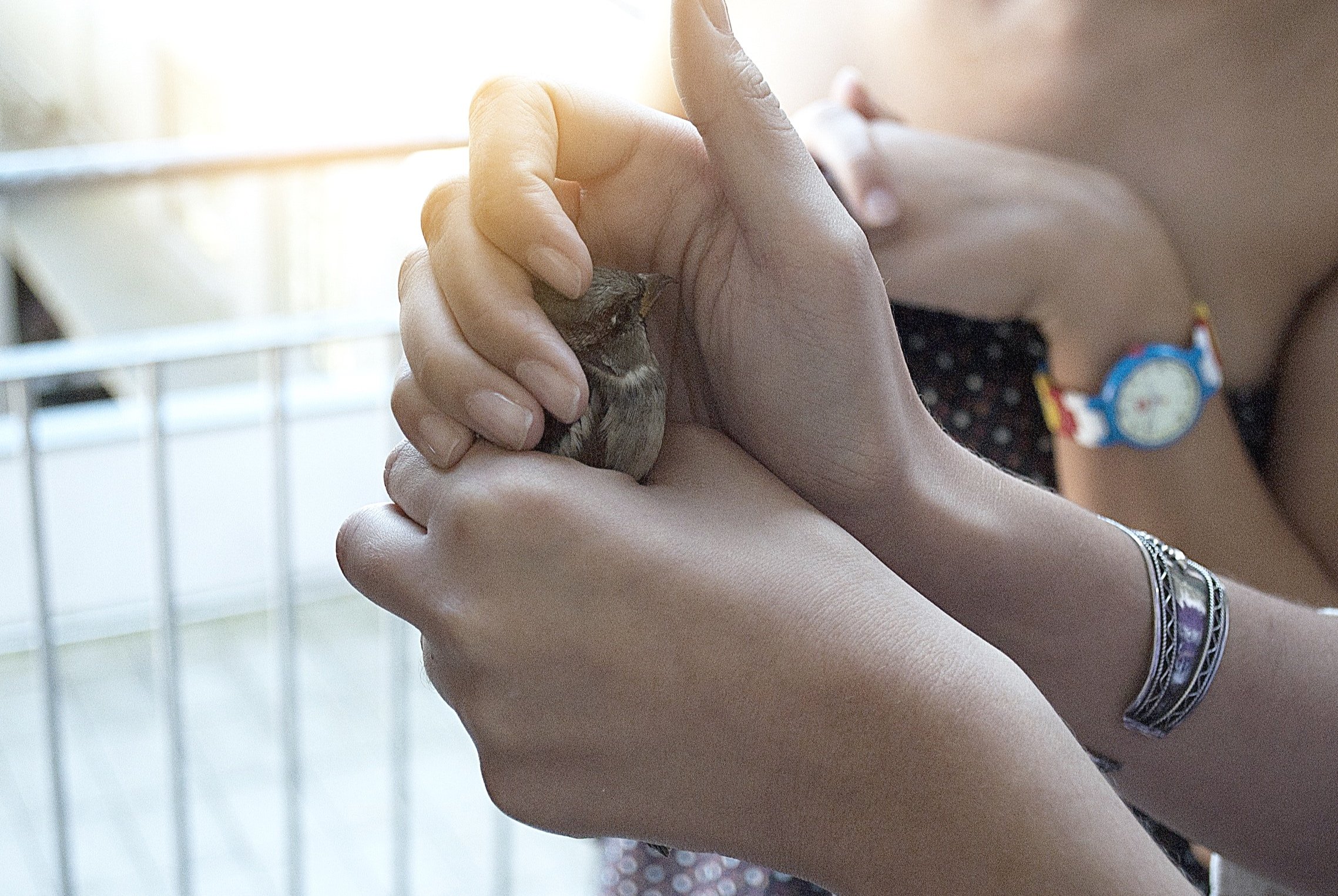What WELLNESS CULTURE Doesn’t Teach You About ILLNESS
The Problem With Searching For A Fix
“Fragility is simply a real quality of me and my body. That fragility deserves to be handled with care, acknowledgment, and respect.”
It took me a long time to realize I had what’s called chronic illness. I actually remember sitting at my computer and reading about someone I knew having chronic illness, and my first thought was, “Wow, that must be so hard.”
I still believed that I was in the normal-but-sensitive camp.
I wake up with pain throughout my spine and hips, and a stiff, immoveable quality to the rest of me. By 11 am, this bone-deep aching has usually receded. Sometimes, I can shake it off earlier. Sometimes, it doesn’t really go away at all.
The first few hours of my day are usually mentally clear. But after awhile, it’s like my brain no longer works. For a few years, the brain fog was so intense I couldn’t carry on a conversation without feeling like I was tripping up, missing something, or just not connecting properly. For years, I couldn’t even read a novel without getting exhausted. (And I love to read!)
A single activity, like sitting still for more than half an hour, washing the dishes for ten minutes, or a trip to the grocery store, can trigger pain and sickness to begin. My back muscles fill with a heavy pain that can’t be touched with pain relievers. My sensitivity to sound and light skyrocket. My heart pounds, my chest feels strange, I’m lightheaded. It’s total sensory overload, and I fight to think and move through it. If I can’t lie down in a dark, quiet room right away, it escalates to an intense level of sickness and sensory sensitivity that I can only sleep off.
These long hours of illness can happen every day if I do too much. That too much is very, very little compared to a healthy person.
In this state, the vibration of a passing car outside, light reaching my eyes, or the sound of the television on in a room far away from me can cause physical pain. If these episodes happen too often in a short period of time, I can find myself sick for months. ME researchers and doctors call this post-exertional malaise. In some of us with ME/CFS, a period of PEM triggered by physical, mental, or emotional activity can take 24 hours to recover from, or trigger a cycle that lasts weeks and months.
I used to paste a smile on my face and push through these symptoms until they made me collapse. I pushed through school, work, parties, bars with my exes and friends, movies at a theater. If you’ve seen me at a social event, in a class, had a reading with me, you’ve likely seen me with the beginning of these symptoms active.
It was an endless cycle that lead to a low quality of life.
Doctors attributed my complaints to a series of physical traumas I had as a child. They said it was “sort of normal”, after all I’d been through.
Along with doctors writing off my symptoms as psychological at best, wellness culture didn’t make it easier for me to realize there was a true problem. In my naïveté, I listened to the general message:
You’ll get better if it’s what you really want, and you do all the right things.
Wellness culture loves to have the answer to everything. If there’s a problem, there must be a fix.
The problem here is that our human life doesn’t always- or even often- have a “fix”, like a car’s engine or a computer’s hard drive might.
Wellness culture’s focus on the fix makes very little room for the existence of the problem. This questions the experiences of the existing people with those problems. (See: gaslighting.)
The idea that you simply need to try harder implies that your experience, if not fixable, must be wrong. You must be doing something wrong, missing a step, not working hard enough, etc.
This approach encourages healthy, able-bodied people to think and speak the same way. This is what spiritual and psychological bypassing look like:
“You can overcome anything. It could be worse, so just get over it and don’t focus on it so much. You’re just giving it power over you.”
“Have you tried x treatment? I swear by my adaptogen-plus-superfood morning coffee.”
“Sounds like you need to do your shadow work, and learn to love this part of yourself that’s asking for attention.”
“The silver lining is, look how much you’ve learned! This is a part of your story. Be grateful.”
“Life’s a movie and you’re the director. Don’t let your illness define you.”
Within the larger spiritual community, there’s an idea that there’s a lesson you have to learn before you get better. Even teachers I respected would come up with reasons that they were “intuitively hearing” or knew through their supposed spiritual path that I was sick. I had to do x thing to get better, they’d say. One spiritual teacher recently suggested that I may not be ready for that kind of “real” work and digging in my “human darkness” that was the cause of this illness.
For a long time, my weak sense of self around my health meant that I allowed even close friends to speak to me in ways that were truly unacceptable. One friend would consistently tell me, “Tara, you’re sick because you’re so negative all the time. You don’t believe that you’ll get better, so you won’t until you do.”
I slowly learned that these attitudes are immature. Full of fear. They’re a protection, a way to pretend that it can’t happen to you. And if it does, you’ll be able to control it.
A problem in modern-day spirituality is its emphasis on getting material desires met, right now. On avoiding discomfort at all costs.
Rather than seeking the closeness of the Divine, on becoming a better person that’s growing each day. It makes sense that this thinking would invade wellness culture too, a space that should be about maximizing the quality of our lives, through embracing the state of our bodies and giving them exactly what they need.
Wellness culture never showed me that illness may just be a collection of needs that my body has that are simply different from other humans around me.
It never taught me that my body has done the very best it could through multiple hospitalizations, and life or death experiences.
It never taught me that maybe I’m ok as I am. Maybe this experience is just fine too.
Wellness culture doesn’t teach acceptance. It teaches you to fight the currents of your body, to resist and deny the passage of time and the weather cycles of your particular ecosystem.
We don’t say something is wrong with the humidity of the Yucatan, the hurricanes of the Atlantic, the monsoons of Asia. We work around the weather systems of the planet. We trust that the variations and changes in pressure, air, water and altitude create particular experiences that cycle over time.
And we consider this totally natural.
The best thing I ever did for myself was begin to accept the processes of my body.
I stopped pushing myself to conform to the schedules and ways of working and being in the world that weren’t right for my body.
I cut out the painful people in my life who couldn’t accept my body’s experiences.
Acceptance opened me up to get empowered in my health journey, hand-picking my team of doctors and ensuring that they work for me instead of bypassing my needs.
No one gets to tell me that something is in my head. Or that I simply need to push through the pain and sickness.
I’ve learned that fragility is simply a real quality of me and my body. That fragility deserves to be handled with care, acknowledgment, and respect. Like every other part of me.
I still haven’t figured out all the details, including how to support myself.
But accepting my reality has allowed me to have a life again, one free of gaslighting and toxic positivity.
When the bad weather blows into my ecosystem, I know how to sit through the storm in a way that’s safe. I now have loved ones who will actually wait out the storm with me, who don’t bail, or look past the rain I’m in and say it’s not there.
Loved ones who want to hear about my experience of the storm, and do what they can to help me weather it.
And when the sun is out, I can live and work and play with people who have my back without judgment.

